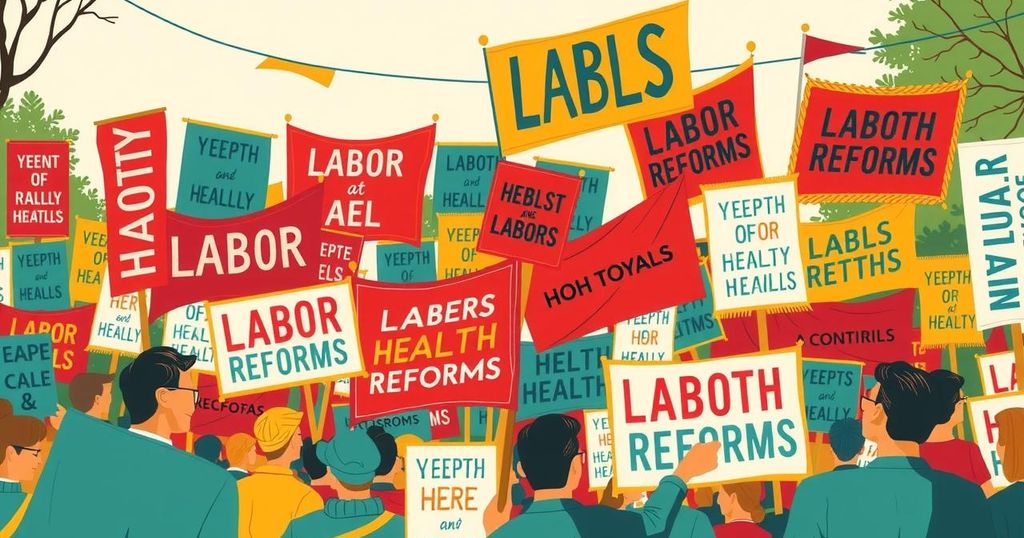Colombia’s President Pushes for Special Election on Key Reforms

President Gustavo Petro calls for a special election on health and labor reforms in Colombia, urging citizens to challenge opposition in Congress. Despite significant hurdles in advancing legislation, the election may encourage voter engagement ahead of upcoming elections. Critics voice concerns over potential consequences for employment within the proposed reforms.
Colombian President Gustavo Petro called upon citizens to resist centrist and right-wing politicians who have obstructed significant reforms to the health system and labor laws during a rally on Tuesday. He emphasized his administration’s commitment to organizing a special election, allowing voters to decide on stalled legislation due to political disagreements. Petro’s declaration aims to engage public support ahead of upcoming congressional and presidential elections next year.
Petro, who is the first leftist president of Colombia, faces considerable challenges in advancing his agenda, with his Historical Pact movement only holding a fifth of the Senate seats. He designated a day off for state workers to participate in the protests supporting the special election, showcasing government backing through promotions on social media and ads. During the rally in Bogota’s Bolivar Square, Petro passionately urged attendees to hold legislators accountable for favoring corporate interests over public welfare.
The planned special election, termed a popular consultation, requires Senate approval and mandates participation from one-third of registered voters to be valid, which amounts to approximately 13 million participants. Political experts express skepticism about mobilizing sufficient voter turnout. However, some believe the election could galvanize support for Petro’s administration in the lead-up to March’s congressional elections, allowing the government to advocate for its initiatives with public resources.
Political analyst Sergio Guzman argued that the government seems to be shifting responsibility for legislative stagnation onto Congress while leveraging reforms as a justification for continued governance. During his 2022 campaign, Petro promised to overhaul the health system by abolishing insurance companies that manage mandatory social security, placing a government entity in control instead. Nonetheless, his reform proposals have faced repeated rejections, with opponents citing excessive governmental control.
In addition to health reform, Petro has introduced labor reforms aimed at enhancing workers’ rights, which include proposals to increase wages for night workers and reduce the reliance on temporary contracts. However, these proposals were dismissed in a recent committee vote, with critics arguing that they could result in higher unemployment. Given that over 55% of Colombians are engaged in the informal economy, detractors contend that Petro’s reforms fail to create adequate incentives for employers to hire these workers.
In summary, President Gustavo Petro is actively advocating for a special election aimed at reforming Colombia’s health and labor systems amidst opposition from centrist and right-wing factions. Despite his commitment, he faces substantial legislative hurdles and skepticism regarding voter turnout. These reforms are critical for his administration’s agenda, which seeks to enhance labor rights and revamp the health system, but will require broad public support to succeed.
Original Source: www.newsday.com







